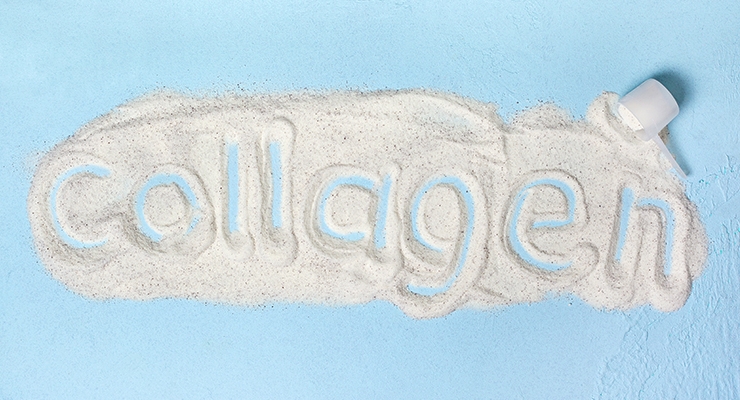Market Updates
ConsumerLab Tests: Collagen Supplements Meet Label Claims
Tests revealed that all of the products contained their claimed amount of collagen.

By: Sean Moloughney

Collagen supplements are promoted to reduce wrinkles and decrease joint pain and stiffness, but do they really work, and if so, which products on the market provide the best quality collagen and the best value?
ConsumerLab recently reviewed the clinical evidence for collagen, and purchased and tested popular collagen supplements sold in the U.S. and Canada as powders, liquids, tablets, capsules and chews. The tests revealed that all of the products contained their claimed amount of collagen. There were significant differences in the amount of collagen the products provided (from 0.01 grams to 25 grams per suggested serving) and in cost (5 cents to over $20 dollars per gram of collagen). One product could not be Approved because it was found to be contaminated with cadmium, a toxic heavy metal, according to ConsumerLab.
Among the products that were Approved, ConsumerLab selected its Top Picks for skin and a Top Pick for joint pain based on quality, dosage and value.
The results are available online in ConsumerLab’s new Collagen Supplements Review, which includes test results and comparisons for 11 products selected for testing by ConsumerLab and three others that underwent the same testing through CL’s voluntary Quality Certification Program. Products covered in the report are: Ancient Nutrition Multi Collagen Protein, Besha Inc Collagen Peptides, Bulletproof Chocolate Collagen Protein, GNC Women’s Collagen, Great Lakes Gelatin Collagen Hydrolysate, Healthy Origins Natural UC-II, LiquiVive Liquid Collagen, Neocell Beauty Bursts, Olly Vibrant Skin, ProCaps Laboratories Marine Collagen Peptides, Reserveage Nutrition Collagen Booster, Trunature [Costco] Health Skin Verisol Collagen, Vital Proteins Collagen Peptides, and Youtheory Collagen.
The review also summarizes the clinical evidence for and against collagen supplementation for reducing wrinkles, improving aging skin, reducing joint pain and stiffness, and building muscle. It also explains the different types of collagen (such as types I, II, and III) and different forms of collagen available (such as hydrolyzed collagen (collagen peptides), undenatured collagen and gelatin), as well as what to look for on labels, dosage, safety, and potential side effects of collagen.


